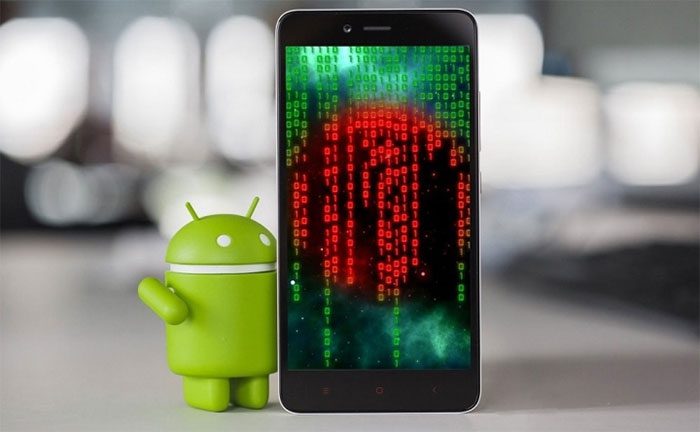Here are the signs that your phone may be infected with malware or dangerous viruses. Please take a look.
After a long period of use, your phone may exhibit various symptoms. However, if your device is infected with malware or a virus, your social media accounts and even your personal information could be at risk.
Signs Your Phone is Infected with a Virus
Advertisements that Don’t Go Away
If you suddenly see numerous advertisements in a specific app or even when no apps are open, your phone may have been infected with adware. These ads might urge you to click on them to infect your device with more severe malware or link to phishing websites.
Device Hotter Than Usual
Your device may become unusually hot to the touch even when not in use. When you accidentally download malware, the internal hardware of the device starts working harder to “support” the embedded malware or virus. This can make your device feel warm or even very hot.

A hot phone that drains quickly is a warning sign of virus infection.
Sudden Upgrade Notifications
This phenomenon occurs when visiting a website using your phone’s browser, such as Firefox, Chrome, or Opera. Your phone may suddenly pop up new notifications with messages like: “Your Android phone is too old, upgrade to the new software now,” “Your device is too slow, download new software,” “Your phone is infected with a virus. Scan it immediately!” Accompanied by strong vibrations, strange sounds, and provocative images…
These notifications are actually created by hackers to trick users into taking the actions suggested in the messages, potentially stealing information, robbing accounts, or even taking control of the user’s device. Therefore, you should never click on any ad pop-ups if you don’t want your smartphone to become even slower.
Interrupted Calls and Poor Connectivity
If your phone is infected with malware, the connection to foreign servers may hinder your device from maintaining a stable Wi-Fi or mobile connection, leading to poor call quality and frequent interruptions. If other devices on the same Wi-Fi connection are functioning properly, then malware may be present on your phone.
Suspicious Applications
Sometimes, an app you downloaded may contain malware that installs additional programs. Check your app list and ensure you recognize the applications you have downloaded. If you see any suspicious apps, do not open them.
How to Handle a Virus-Infected Phone
If your phone is unfortunate enough to be infected with a virus, you can immediately apply the following solutions:
Scan for Viruses
If you cannot find anything suspicious on your own, you may need assistance from a good antivirus program such as BitDefender, Kaspersky, Norton, or McAfee. These programs are designed to identify and remove any malware they find.
Reset the Device
One effective way to handle a virus-infected phone is to restore it to factory settings. This process will erase all your data and remove any malware in the process. If you have a backup of your data from before the device was infected, you can try restoring it to that point.
As a general rule, you should only grant access to features that the app requires. Moreover, you should regularly update your device and never install apps from sources other than the App Store (iPhone) and Google Play Store (Android). These precautions will help ensure your phone is safer from malware on the internet.
How to Prevent Your Phone from Being Infected with a Virus
- Avoid software applications of unknown origin, and do not install cracked games or apps.
- Do not visit websites or applications that have deceptive advertisements to install malware on your phone.
- Remove all unfamiliar software. To ensure safety, only install essential applications like Facebook, Messenger, Zalo, Zing Mp3, etc., downloaded from the app store.
- Be cautious with attachments and only open them from trusted sources (similarly with embedded links).
- Be wary of emails that appear to be from companies you are collaborating with.
If you notice anything unusual happening with any activity you’re conducting on your phone, question it immediately and ask yourself whether it’s worth risking your phone’s functionality or the data it holds.





















































